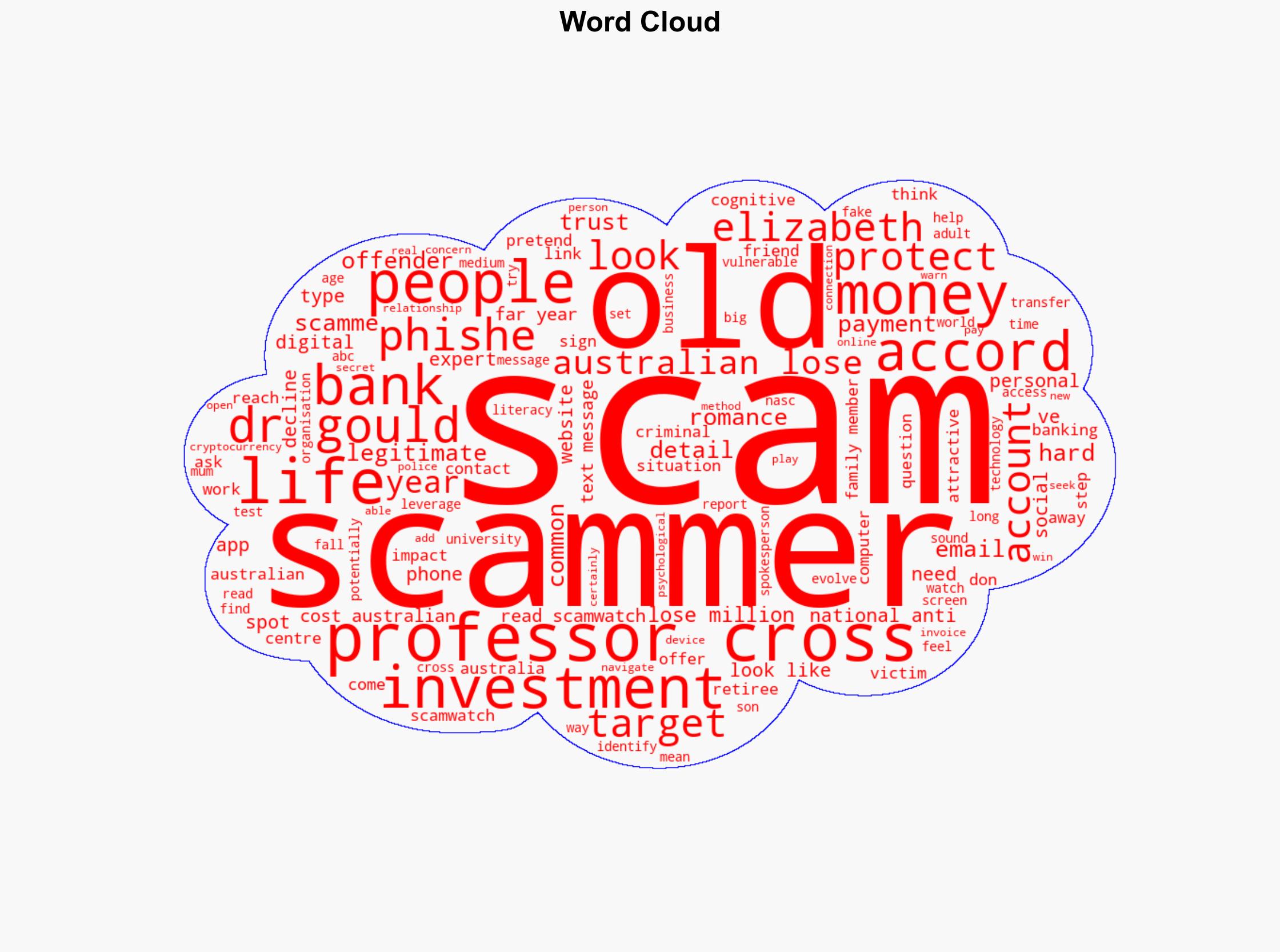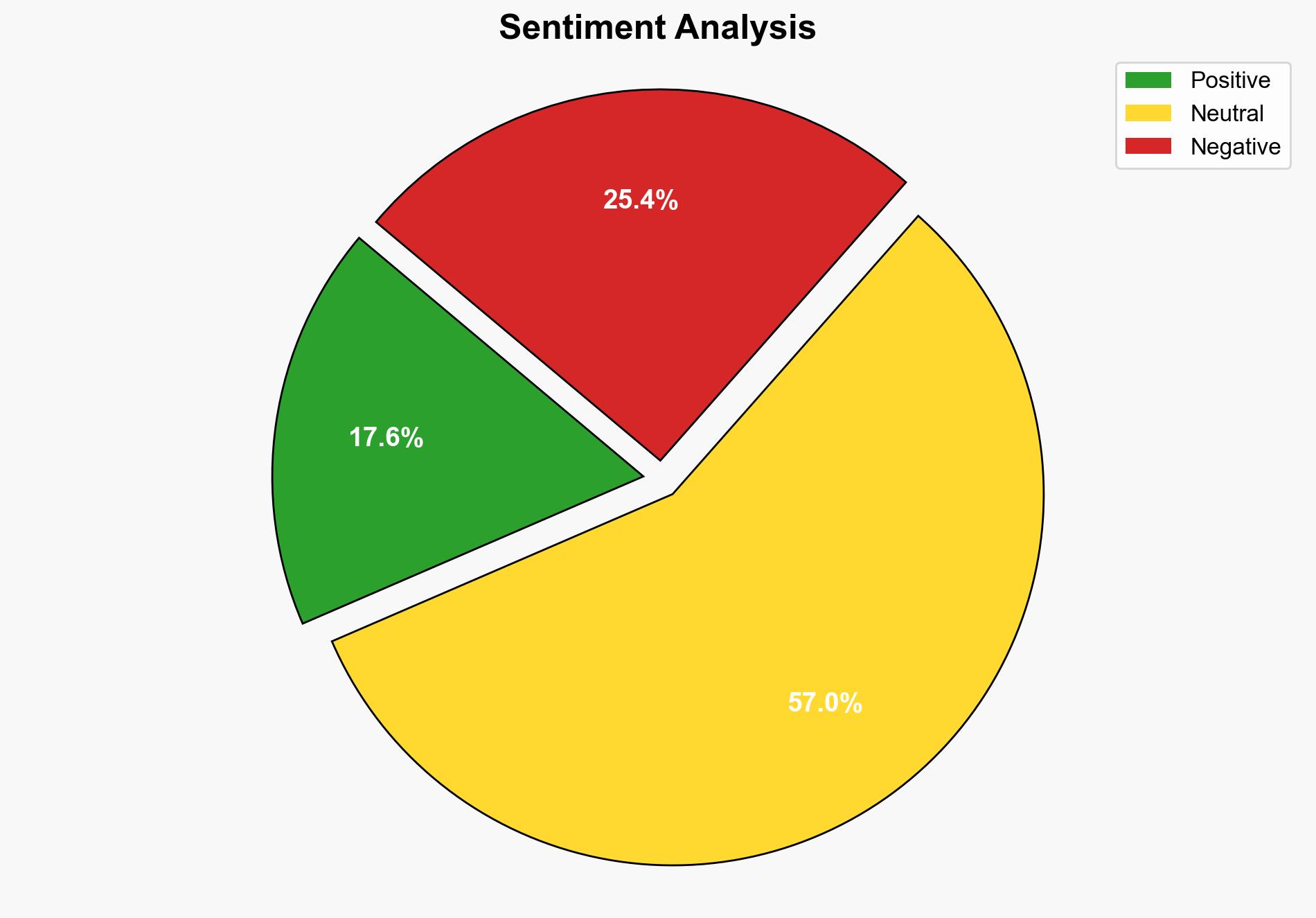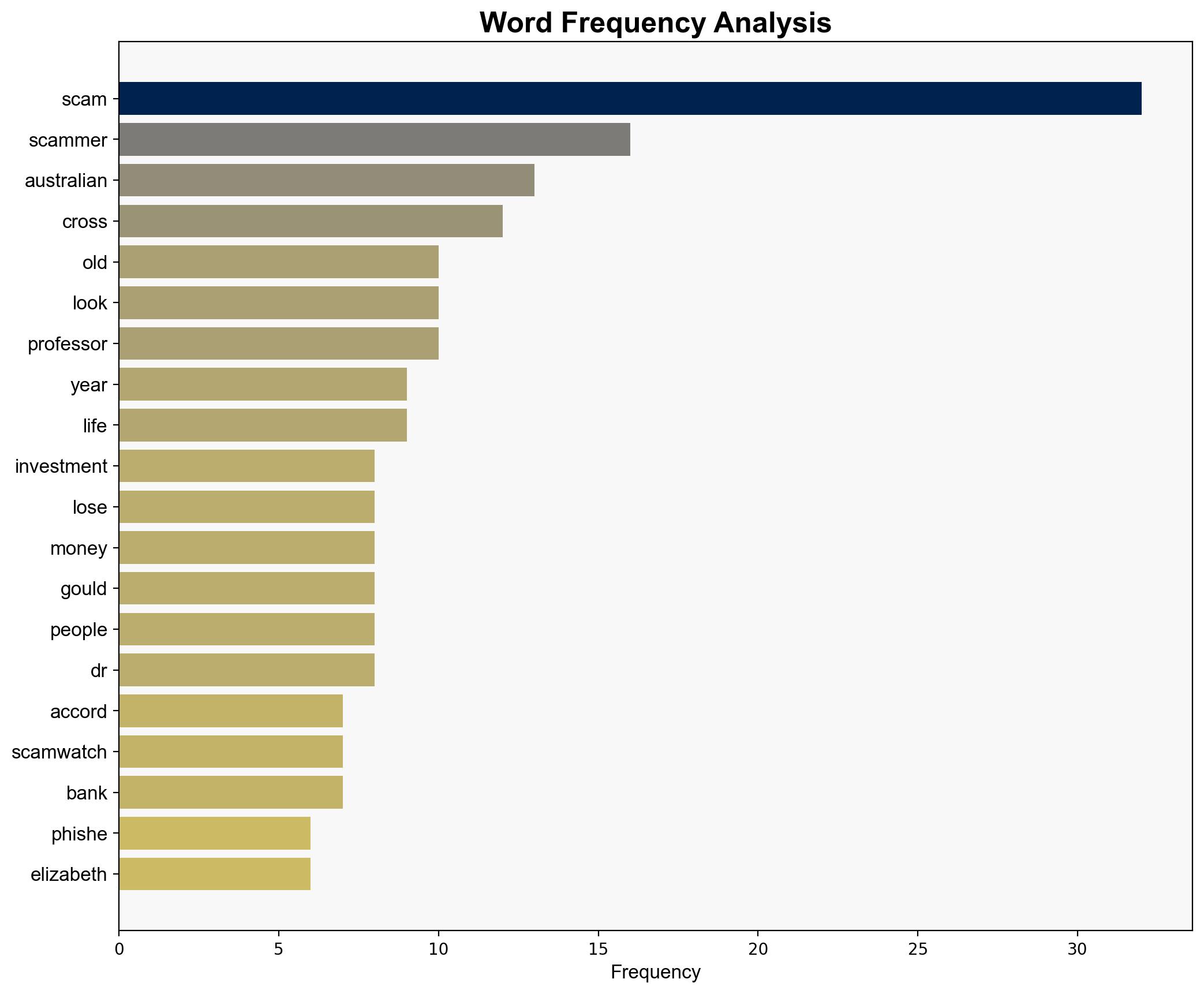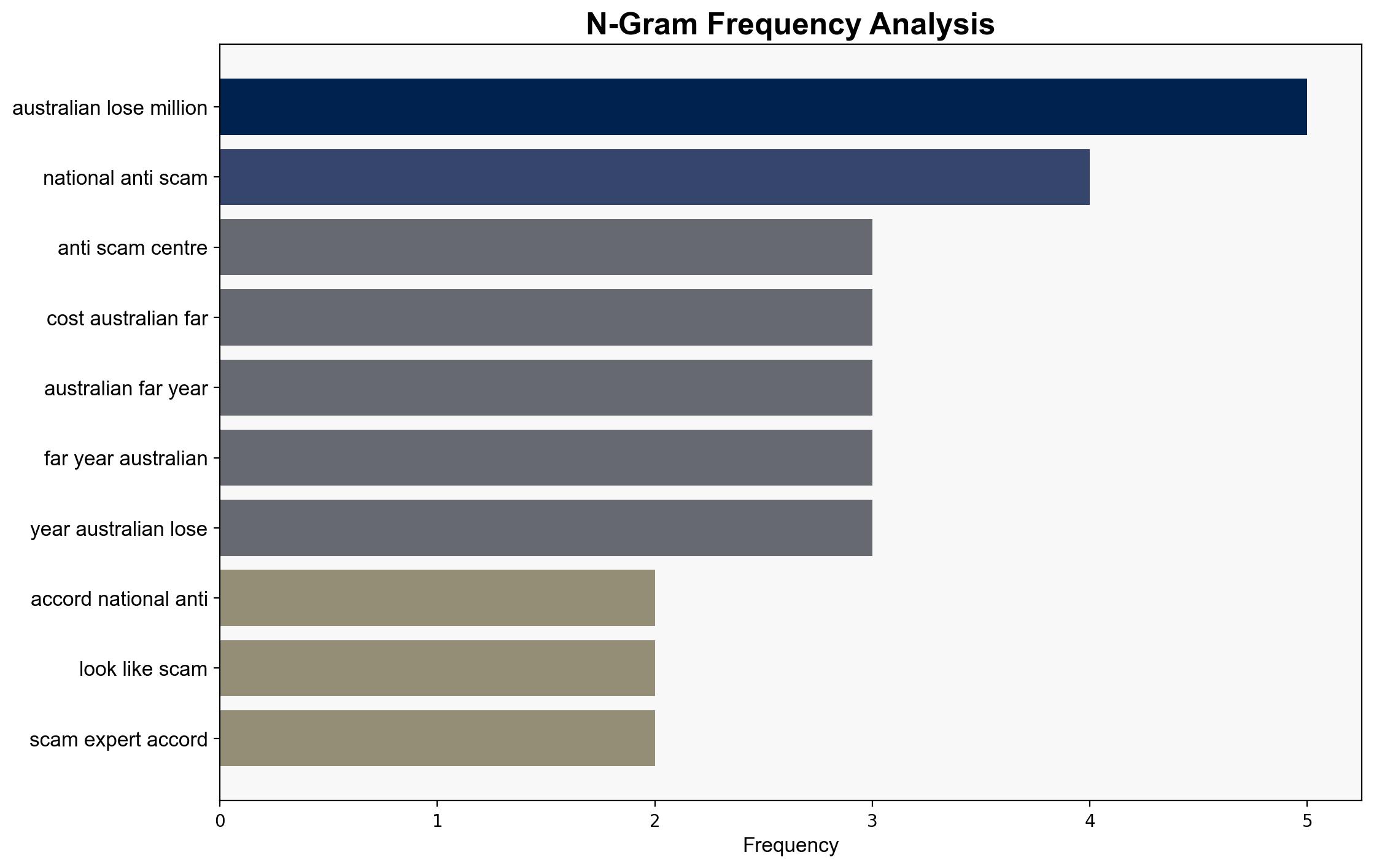Elizabeth clicked on an email link and lost her life savings – ABC News (AU)
Published on: 2025-10-24
Intelligence Report: Elizabeth clicked on an email link and lost her life savings – ABC News (AU)
1. BLUF (Bottom Line Up Front)
The most supported hypothesis is that organized criminal syndicates are systematically targeting vulnerable demographics, such as retirees, through sophisticated phishing scams. Confidence level: High. Recommended action includes enhancing public awareness campaigns and strengthening cybersecurity measures targeting these demographics.
2. Competing Hypotheses
1. **Hypothesis A**: Elizabeth Parker was targeted by an organized criminal syndicate that specializes in phishing scams aimed at retirees, exploiting their perceived lack of digital literacy and cognitive decline.
2. **Hypothesis B**: The phishing scam was conducted by an individual or small group acting independently, leveraging easily accessible phishing tools and techniques to exploit general vulnerabilities in online security.
Using Analysis of Competing Hypotheses (ACH), Hypothesis A is better supported due to the scale and sophistication of the scam, which aligns with patterns of organized criminal activity.
3. Key Assumptions and Red Flags
– Assumption for Hypothesis A: Organized crime groups have the resources and motivation to target specific demographics.
– Assumption for Hypothesis B: Individuals can independently conduct sophisticated scams without significant resources.
– Red Flags: Lack of specific details on how the phishing email was crafted and delivered; potential underreporting of similar incidents.
4. Implications and Strategic Risks
The increasing sophistication of phishing scams poses significant economic risks, particularly to vulnerable populations. This could lead to a loss of public trust in digital communication and financial institutions. There is also a risk of cascading effects if such scams are used to fund larger criminal or even terrorist activities.
5. Recommendations and Outlook
- Enhance public awareness campaigns focusing on digital literacy for older adults.
- Strengthen cybersecurity measures and protocols for financial institutions to detect and prevent phishing scams.
- Scenario Projections:
- Best: Successful public campaigns reduce phishing incidents by 50% within a year.
- Worst: Phishing scams increase, leading to widespread financial instability among retirees.
- Most Likely: Incremental improvements in awareness and security reduce incidents moderately.
6. Key Individuals and Entities
– Elizabeth Parker
– Mark (Elizabeth’s son)
– Cassandra Cross
– Kate Gould
7. Thematic Tags
national security threats, cybersecurity, economic security, digital literacy, organized crime




